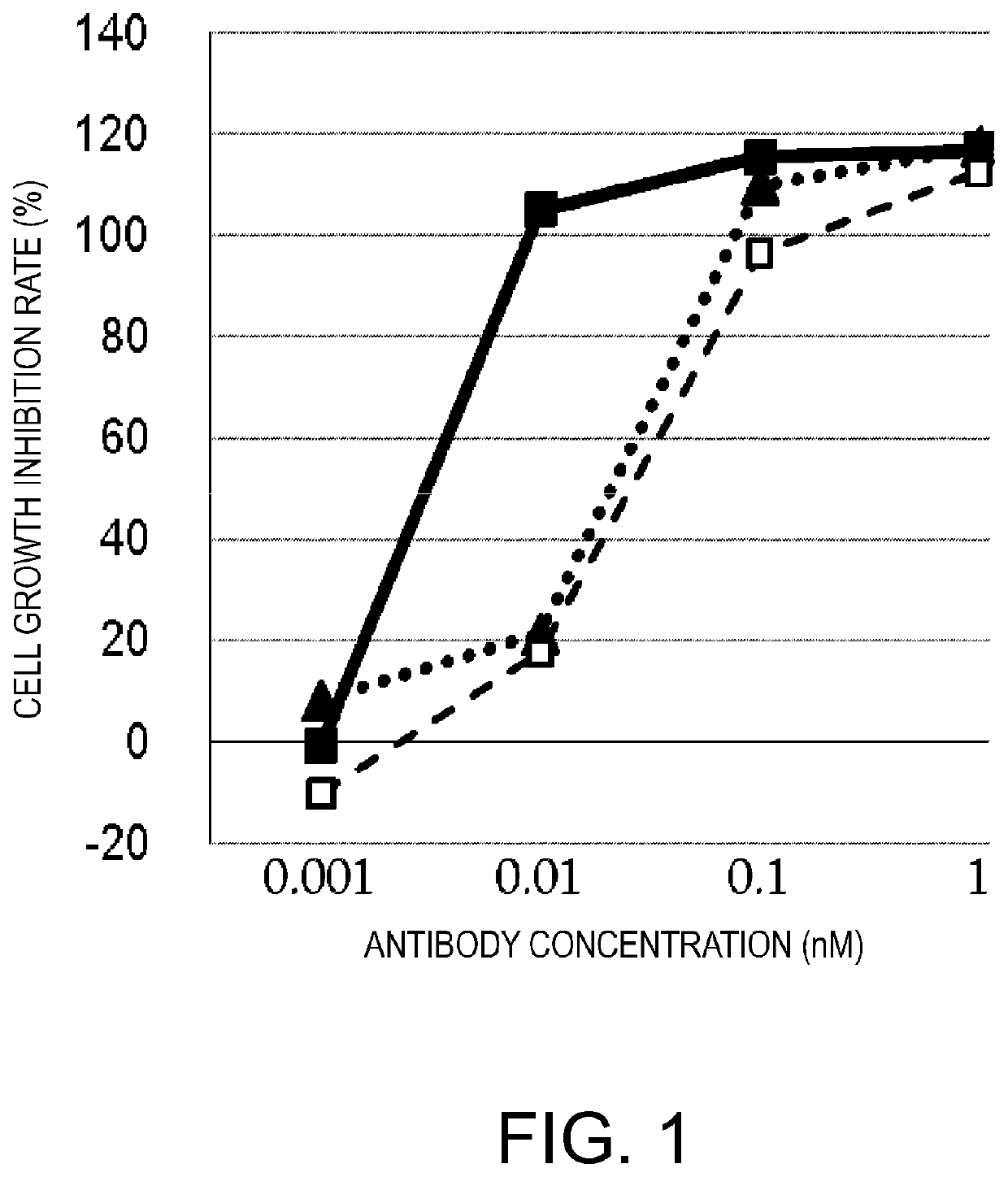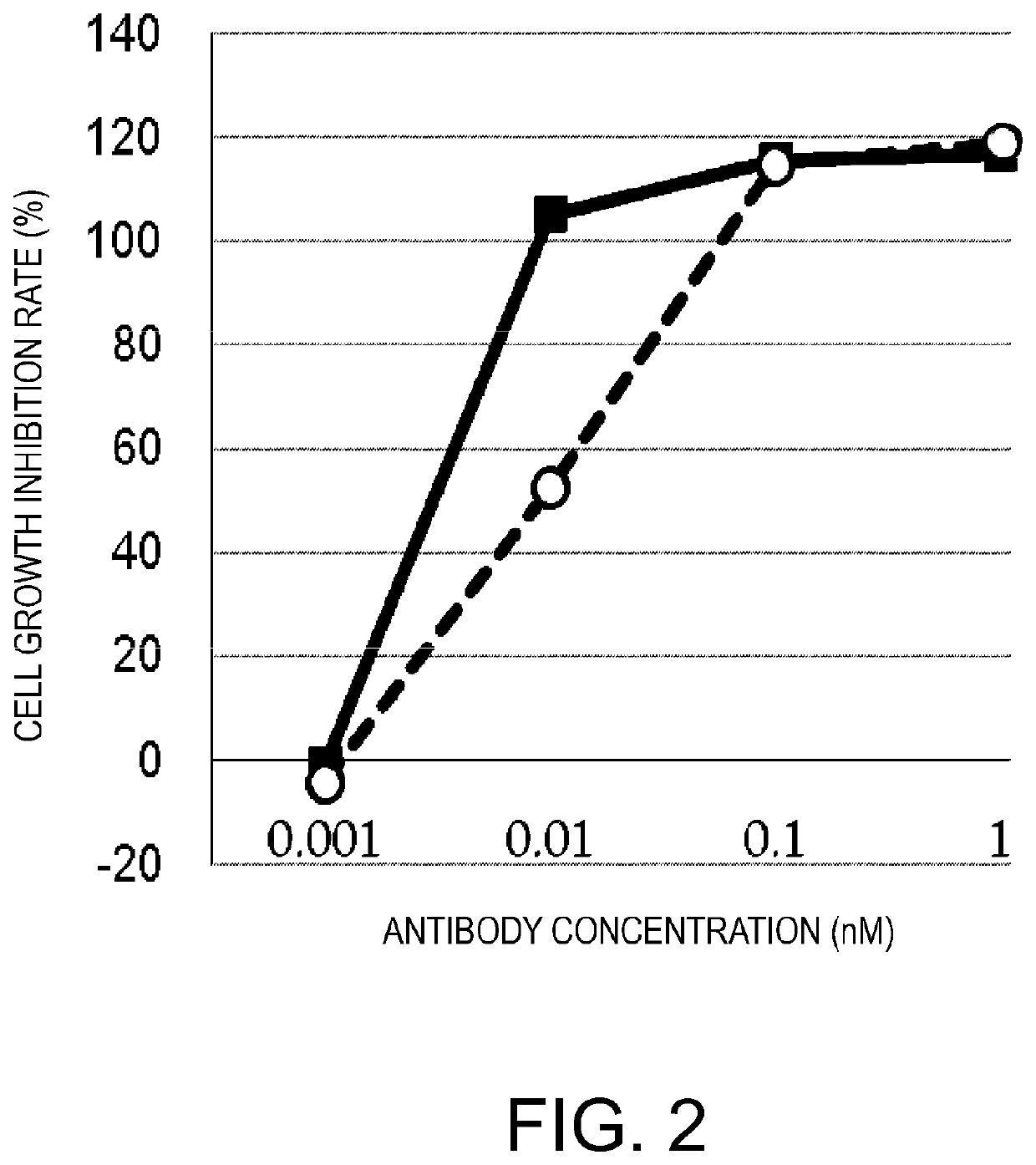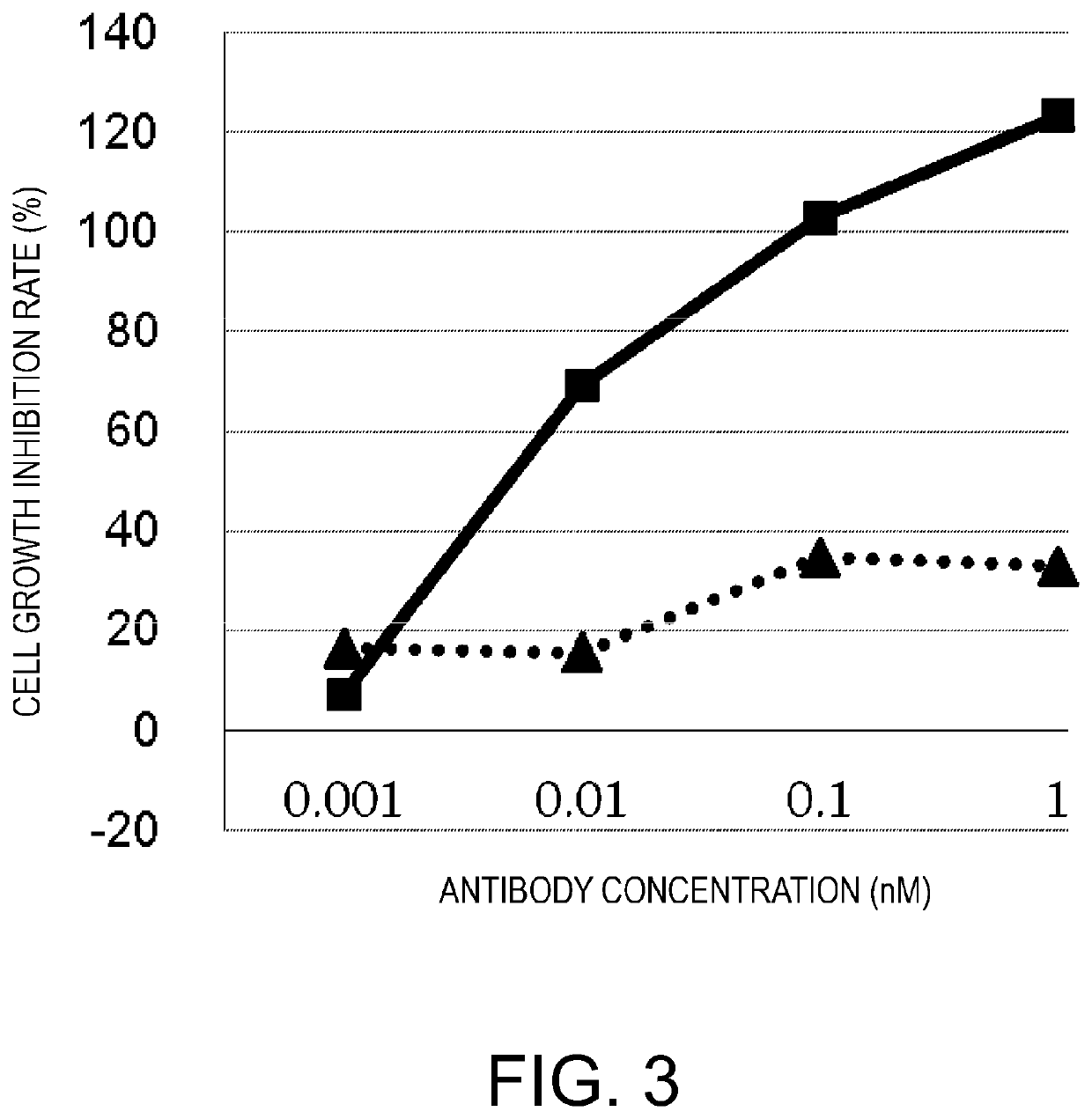Cytotoxicity-inducing therapeutic agent
a cytotoxicity-inducing and therapeutic agent technology, applied in the field of polypeptide complexes, can solve the problems of cytokine storm-like side effects, catumaxomab cannot reach the effective blood level, and the therapeutic effect is not satisfactory, so as to reduce the physical burden of patients, and achieve high safety and convenien
- Summary
- Abstract
- Description
- Claims
- Application Information
AI Technical Summary
Benefits of technology
Problems solved by technology
Method used
Image
Examples
example 1
[Example 1] Construction and Assessment of GPC3 ERY2
(1) Outline
[0292]There is a well-known method for prolonging the blood half-life of a protein administered in vivo, which is based on the FcRn-mediated recycling using a protein of interest conjugated to an antibody Fc domain. However, the conjugation of a natural type of Fc to BiTE could lead to induction of various cytokines, since a single molecule would bind to a T cell via the anti-CD3 scFv of its BiTE moiety and simultaneously to the FcgR (Fcγ receptor) on the cellular membrane of, for example, a NK cell or macrophage via its Fc domain, and the resulting cross-linking would activate these cells in a cancer antigen-independent manner. Thus, a molecule termed ERY2, in which a BiTE is linked via a polypeptide linker to an Fc domain having reduced Fcγ receptor-binding activity (silent Fc), was prepared, and the activity of ERY2 was assessed by comparing it to that of the BiTE. The scFv of an anti-CD3 epsilon antibody was linked v...
example 2
[Example 2] Construction and Assessment of GPC3 ERY5, GPC3 ERY6, and GPC3 ERY7
[0305]Next, in an attempt to improve the specific activity, the cancer antigen (GPC3)-binding domain was made bivalent to enhance the cancer cell-binding activity. Another anti-GPC3 scFv was added to GPC3 ERY2 to construct GPC3 ERY5 (FIG. 17D). Furthermore, instead of the scFv, a Fab-type GPC3-binding domain was added to produce GPC3 ERY7 (FIG. 17F). In addition, GPC3 ERY6 (FIG. 17E) was also constructed in which the anti-CD3 epsilon scFv of GPC3 ERY5 was split into two arms.
[0306]Specifically, a method known to those skilled in the art, such as PCR using primers containing the same appropriate additional sequences as in the above-described method, was performed to produce a series of expression vectors into which a polynucleotide encoding GPC3 ERY5Hh, GPC3 ERY6 Hk, GPC3 ERY6_Hh, GPC3 ERY7 Hh, or GPC3 ERY7_L was inserted.
[0307]The following combinations of expression vectors were introduced into FreeStyle2...
example 3
[Example 3] Construction and Assessment of GPC3 ERY8-2, GPC3 ERY9-1, and GPC3 ERY10-1
(1) Construction of GPC3 ERY8-2, GPC3 ERY9-1, and GPC3 ERY10-1
[0313]Next, molecules having no BiTE structure but possessing the desired activity were designed. An anti-cancer antigen (GPC3) IgG was used as a backbone, and a molecule in which an anti-CD3 epsilon scFv was added to this backbone was constructed. The IgG Fc used as a backbone was a silent Fc having reduced FcgR (Fcγ receptor)-binding activity, as in the above-described cases. GPC3 ERY8-2 (FIG. 17G), GPC3 ERY10-1 (FIG. 17I), and GPC3 ERY9-1 (FIG. 17H) were constructed in which the anti-CD3 epsilon scFv was attached to the N terminus of the H chain, C terminus of the H chain, and C terminus of the L chain of the anti-GPC3 antibody IgG, respectively.
[0314]Specifically, by a method known to those skilled in the art, such as PCR using primers containing the same appropriate additional sequences as in the above-described method, a series of e...
PUM
| Property | Measurement | Unit |
|---|---|---|
| concentration | aaaaa | aaaaa |
| concentration | aaaaa | aaaaa |
| concentration | aaaaa | aaaaa |
Abstract
Description
Claims
Application Information
 Login to View More
Login to View More - R&D
- Intellectual Property
- Life Sciences
- Materials
- Tech Scout
- Unparalleled Data Quality
- Higher Quality Content
- 60% Fewer Hallucinations
Browse by: Latest US Patents, China's latest patents, Technical Efficacy Thesaurus, Application Domain, Technology Topic, Popular Technical Reports.
© 2025 PatSnap. All rights reserved.Legal|Privacy policy|Modern Slavery Act Transparency Statement|Sitemap|About US| Contact US: help@patsnap.com



